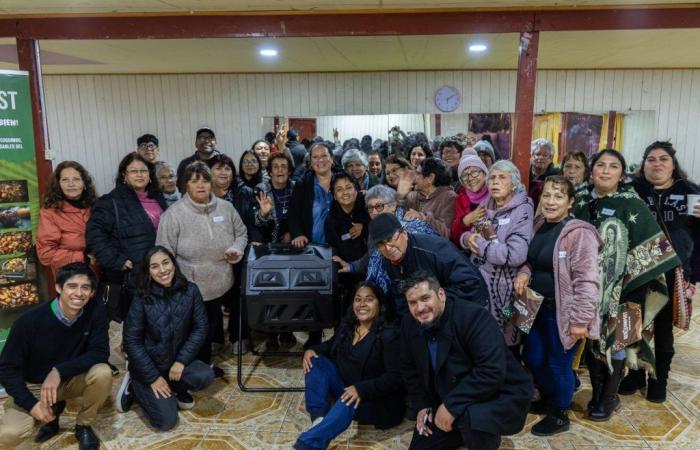There were 500 beneficiaries from the communes of La Serena, Coquimbo, La Higuera, Ovalle, Combarbalá, Los Vilos and Illapel. More than 40% were older adults and 60% were women.
The Coquimbo Region celebrates an important achievement in its commitment to environmental sustainability and community strengthening. After the successful development and closure of the “Home Composting Network for the Coquimbo Region” project, where more than 500 people have benefited, leaving a mark of positive change.
This project, implemented in seven communes in the region, was possible thanks to the financing granted by the Regional Interest Fund of the Regional Government, in collaboration with the Regional Corporation for Productive Development (CRDP). Through this initiative, the beneficiaries received compost bins, training in home composting practices, and an implement kit.
Each of the 500 beneficiaries received recycled plastic compost bins, designed with two 80-liter capacity chambers, allowing the simultaneous production of two types of compost. In addition, continuous advice was guaranteed not only during the execution of the project and afterwards, thus ensuring its effectiveness and sustainability in the long term.
Nelson Ortiz, one of the project participants, shared his enthusiasm: “I found a very positive development that will really be a benefit for the entire community.” Paulina Acevedo, another beneficiary, added: “I thought it was very important that this information on recycling organic waste also reached the neighborhood council, so we can help the planet and improve the quality of life a little.”
The success of the project was evaluated after the training, where the learning of the participants was evaluated. Manuel Díaz, Project Manager of the NGO Ecoterra, refers to the scope obtained during the development of the project, indicating that “We are pleasantly surprised because in just one month there were about a thousand people who participated in the initiative; between beneficiaries and listeners. There were municipal officials, community leaders and representatives of educational, social and health institutions,” he indicated.
Reinaldo Rodríguez, workshop leader of the NGO Ecoterra, highlighted that: “We try to contribute with a grain of sand to a change that must occur in our culture and in our society so that there is a little more environmental awareness.”
40% of the participants were older adults and 60% were women, an outstanding participation that was praised by Regional Councilor Pedro Valencia: “These are resources well invested that contribute to making our region a better place to live, with less pollution and “a closer care of our land, which we have so often neglected.”
The success of this project transcends numbers, leaving an impact on communities and the environment, which will be able to take concrete measures to make real change.
Natalia López, founder of Ecoterra NGO, thanked the enthusiasm and participation, noting that “We give our most sincere thanks to all those involved in this project, since, without their commitment and dedication, this achievement would not have been possible.”
For its part, the Regional Productive Development Corporation (CRDP) was the entity that collaborated in the execution of the project. Regarding the importance of this initiative, Manuel Schneider, Manager of the CRDP, indicated that “this project seeks to support the culture of waste reuse and composting. We hope to replicate this initiative since it was very well received by people, they actively participated in the workshops in the different communities and demonstrating that if the tools are provided they can support waste management in cities.”
The “Home Composting Network for the Coquimbo Region” project marks a milestone in the area as it is part of the National Organic Waste Strategy. This initiative seeks to establish a network of people committed to the treatment of organic waste, which represents more than 54% of the waste generated. With this step, we move towards a more sustainable and green future, sowing the seeds of change to reap a more vibrant and environmentally friendly reality for future generations.






